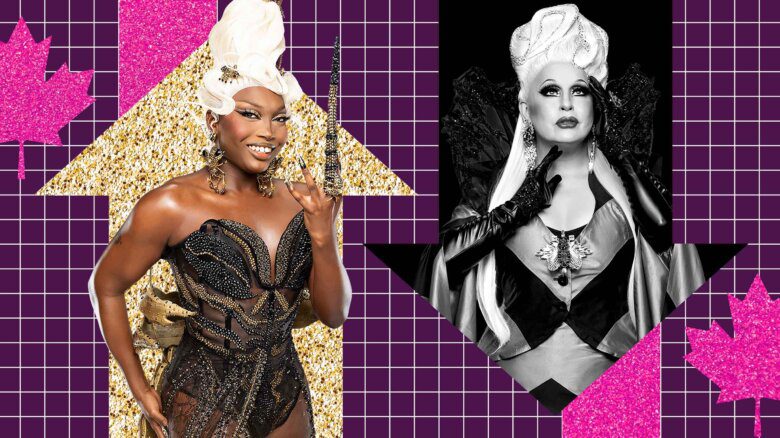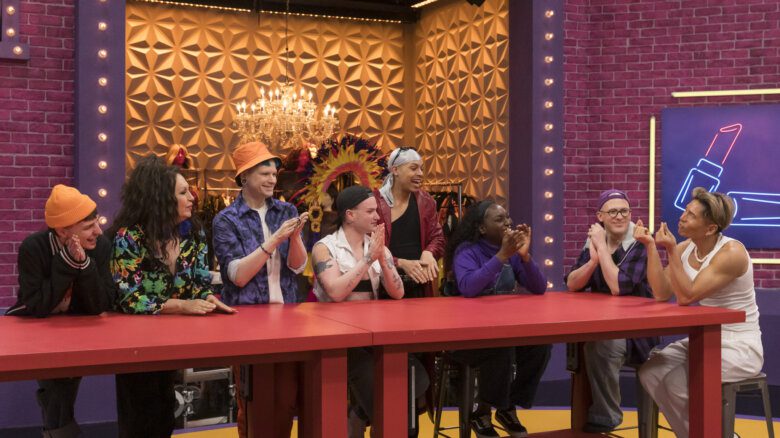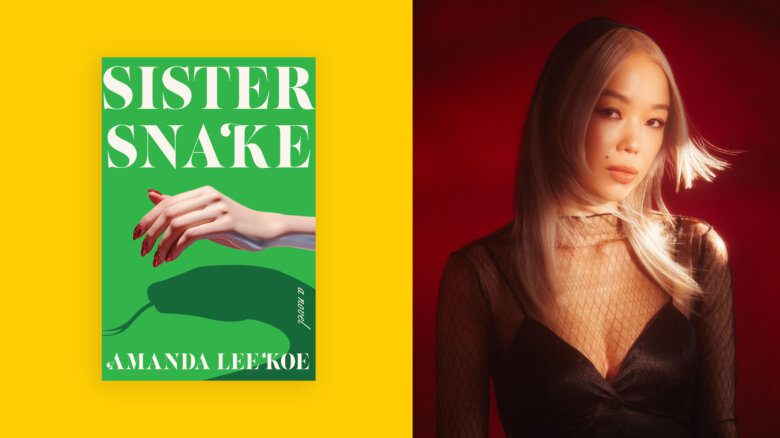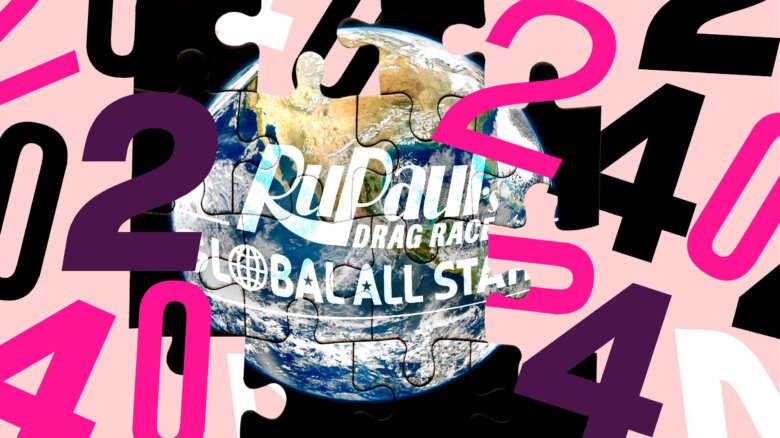Joey Reef’s journey of self-discovery has only begun. “I’m only just starting to explore who I am and confront old trauma surrounding my identity,” the 22-year-old trans, non-binary former Orthodox Jew tells me. The sun beats down on the small patio cafe where we meet in Thornhill, Ontario, a half-hour drive from Toronto. As they take a sip of their lemonade, I thank them for meeting with me. “It definitely wasn’t easy getting here,” they say. I know they aren’t talking about the commute.
Trans and non-binary Orthodox Jewish people face unique challenges when it comes to exploring and expressing their identities. As minorities within an already marginalized group, many express feeling forced to choose among sexual, gender and religious identities. But as queerness and transness becomes more socially accepted and support has become more readily available, many queer Jewish folks have found ways to thrive within their own definitions and understandings of faith and spirituality.
Born in Calgary, Reef spent the first three years of their life in one of the few Orthodox religious neighbourhoods in Alberta. “There were 10 or more religious families that all lived on connecting streets,” Reef says. “There was a school and a synagogue, and we all stayed in our space together.” At age 3, Reef and their family moved to a larger religious community in Montreal. Then at 14, they made the final move to Thornhill and into yet another heavily religious community. “These areas were all very judgmental,” they say. “If you didn’t follow all the rules, you had to hide it in order to be accepted.”
Reef now lives with their sister in downtown Toronto, and while they still identify as Jewish, they no longer identify with the communities they grew up in. “There are a lot of different reasons why I’m not religious anymore,” Reef says. “Religion made me who I am, but it also challenged a lot of who I am, too. It’s complicated.”
Much of Reef’s childhood was structured around religious traditions and practices. And, in turn, much of the religion was structured around gender.
From a young age, Orthodox children are taught that it’s wrong to touch someone of a different gender. Shomer negiah, they call it, with the purpose being to preserve purity and enrich your eventual married life.
Gender divisions are also present in synagogue, where men and boys are separated from the women and girls by a wall or curtain. The men are allowed to touch the Torah and daven, or pray, out loud while the girls are expected to sit quietly and pray to themselves. “As a person who was raised to be a girl, I was constantly aware of the genders around me, and I was expected to stay where I belonged,” Reef says.
One of the most prominent ways that gender is emphasized within Orthodox Judaism is through clothing. Girls and women wear long dresses or skirts, with their ankles and wrists covered. A married woman must also always cover her natural hair when in public. Boys and men can wear pants and shirts, including short sleeves, which are prohibited for women, and must always wear a kippah, a small traditional head covering.
“I never felt like I was a girl or a boy. I just kind of existed. But I also didn’t really know that I could be someone else.”
Attending an all-girls school, even textbooks had to be redacted to better fit modesty standards. “If there was a drawing in a book of a girl in pants, our teachers would take a marker and colour over it into a dress or skirt,” they say. “We weren’t supposed to even see anything that suggested that we could exist outside of our roles.” Reef, too, was required to wear the school uniform; a long skirt or dress, and a long sleeve shirt. But at home, they often played dress-up with their older brother’s clothes. At the time, Reef didn’t consider their dressing up as an act of non-binary expression. “I didn’t have the language or the awareness to explain that it felt necessarily better or different, but that was okay, because it felt good, so I did it.”
With the understanding that it was only play, Reef’s parents allowed it, but only behind closed doors. Beyond the realm of make-believe, Reef says expectations were clear. Sometimes in quiet rebellion, Reef would wear their brother’s shirts over their skirts or under their dresses. “I never felt like I was a girl or a boy. I just kind of existed,” Reef says, “But I also didn’t really know that I could be someone else.”
Then, at 16, something happened. It started when Reef landed a job as a gymnastics coach. They convinced their parents that it would be okay for them to wear pants to the gym, because of how active the work was and because most of the athletes were girls.
From there, they began to test the boundaries outside of work, wearing pants under their skirts or short sleeved shirts without a sweater. By high school, they were only wearing skirts to school or on Shabbat, and by their first year of post-secondary at Humber College in Etobicoke, Ontario, they were almost exclusively wearing pants.
“I’m not sure why, but as I went further and further, my parents just ignored it,” Reef says. “And I didn’t complain.”
While these changes were necessary, they definitely weren’t easy. “I felt naked in a way. I kept having random moments where I would look at myself and think, ‘What I’m doing is wrong,’” Reef says. “Even now, it’s still a bit confusing and I do feel a bit guilty at times, but the other side of me realizes that this is who I am and I can’t change it, so I might as well like myself.”
Clothing was one way Reef could play with their gender as a teen. But there were other areas of their identity that they worried about exploring.
For one, Reef toyed for years with the thought of changing their pronouns. But “it didn’t feel like something that was an option,” they say. “I still lived with my parents, and it seemed like something really difficult.”
Then COVID-19 hit. Within the year, Reef moved out on their own and had the freedom to use they/them pronouns with friends. “So much of my social life and contact with my family was non-existent. I only had to see the people I wanted to see,” they say. By the time they returned to work in 2021, they felt comfortable enough to come out with their pronouns to both their colleagues and their family.
“My mom had a really difficult time with it at first, but she always told me, whenever she struggled with it, that she loved me and that her struggle was with her own acceptance and not with loving me.” Reef’s mother still doesn’t use their correct pronouns, but they are hopeful that in time, she will start.
“At the end of the day, my parents want me to be happy. But I think their definition of my happiness is different from mine.”
“My dad still loves me, too, but he’s made it clear that he doesn’t want to hear anything about my identity,” Reef says. “He doesn’t use my pronouns, and I don’t think he ever will,” says Reef, who adds that they don’t resent their father, and they understand how hard change can be on a parent.
Since coming out, Reef has also begun looking into testosterone and top surgery, though they know they wouldn’t have the support of their family.
“My mom and dad have made it clear that they wouldn’t be okay with it. They see it as unnecessary changes with unnecessary risks. I still plan to do what works for me and my body, but I do worry about disappointing them. Even though I already have, and I do every day.
“At the end of the day, they both care about me and want me to be happy. But I think their definition of my happiness is different from mine.”
While their parents haven’t been entirely supportive, Reef feels lucky to have friends who are—especially other queer religious folks experiencing similar challenges. But finding such a colourful and accepting community can be difficult when your exposure to the world is so limited.
Though few and far between, there are organizations that support and encourage the relationship between Judaism and queer identity. One group, Eshel, is known across the United States for creating programming, events and resources tailored to Jewish LGBTQ+ folks.
In 2016, Reef connected with their brother’s friend, who often visited the house for Friday Shabbat dinners. They were the first queer and religious person that Reef had ever met, and Reef found themselves drawn to them immediately. “They inspired me to be more authentic. They still do,” Reef says. The two began chatting, and Reef was eventually connected with the Eshel Facebook group where they soon made many like-minded, queer Jewish friends.
In 2018, the first in-person Toronto chapter was formed. While the group is still relatively small, with anywhere from five to 25 members a meeting, they continue to host events and get together weekly to discuss issues and socialize.
“It’s important to have spaces for queer, religious Jewish people,” says Miriam Rivkah Weiss, a gender nonconforming, post-binary person and co-organizer of Eshel Toronto. “Before Eshel, I would go to my queer resource centre at school, and they were very welcoming and lovely, but part of me had a hard time because there were so many parts of my experience that I couldn’t really talk about. Stuff that you’d understand if you grew up Orthodox.”
“People need places they can feel safe in.”
Weiss, who uses the neo-pronouns twee/twim/tweirs, also added that there seems to be “a correlation” between coming out as queer and distancing oneself from the religious community. “That’s why groups like Eshel are so important. People need places they can feel safe in.” Weiss says. “We need to combat the idea that religion and queerness can’t go together, because they can.”
When it comes to the question of whether they feel their religion affected their present gender identity, Reef says it’s just not that easy. “It’s impossible to know what impacted what because they are both a part of me. There was never a moment when I realized I was non-binary. I think it was just a bunch of little things that, once I was old enough, I kind of put together and realized myself.”
Reef does say that they were affected by the divisive religious practices. “I often felt excluded in my religion because of my assigned gender. Most of the roles in the synagogue are [assigned] male roles, so I didn’t get to be a part of any it, even though sometimes, I wanted to be.”
Ironically, Reef also points out that it may have been the strict practices that helped them come into their trans identity.
“There was a big emphasis put on having kids and getting married. By the end of high school, a lot of people I knew were already with husbands and starting their families,” they say. “Being surrounded by it all the time sort of helped me realize how much I didn’t want it for myself, and how the idea of being a wife and a mother was not who I am.”
While they no longer attend synagogue or interact with much of their old community, Reef says that they are still very much Jewish.
“Sometimes I’ll make challah and have a Friday supper with my sister. But the bigger fact is that Jewish history is part of my history,” Reef says. “I am still Jewish. I have just realized that it doesn’t have to follow all the rules. And I’m also a lot happier now that I am at a point in my life where I’m able to explore my identity and who I am.”
For Weiss, the feeling is shared. “I’m not cutting off religion just because I’m queer. I’m finding ways to celebrate both, with people who feel the same way as me. It’s a part of the human experience to find people we connect with, and we find that with each other.”
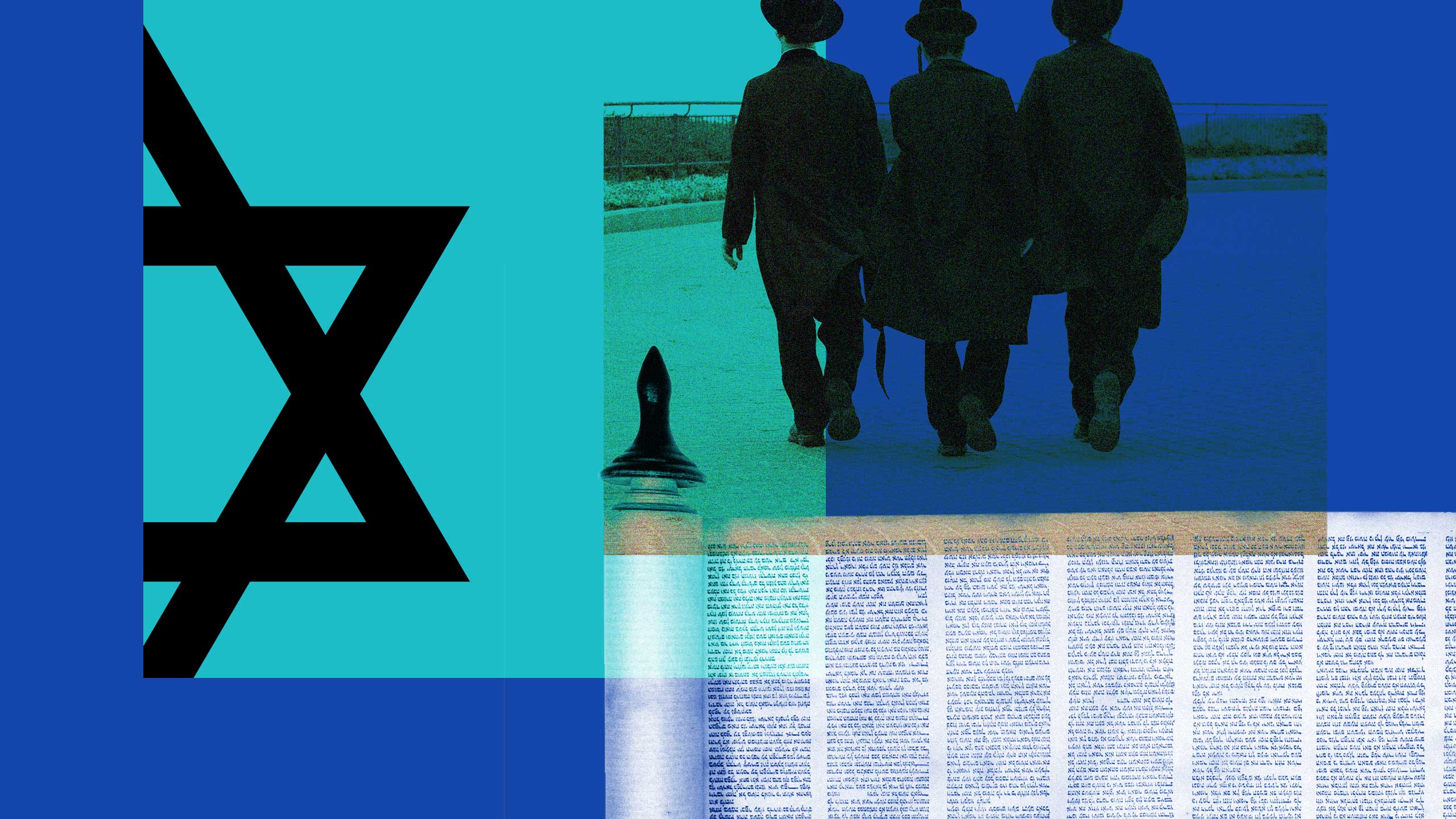
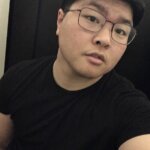
 Why you can trust Xtra
Why you can trust Xtra